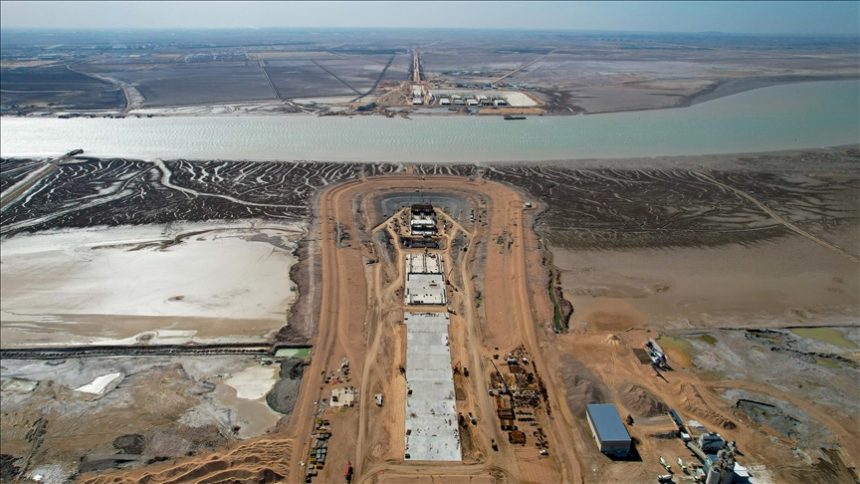Iraqi Foreign Minister Fuad Hussein on Friday said that the planned Türkiye-Iraq Development Road will be a “massive project” that will connect the Gulf countries with Europe.
Speaking to Anadolu at the Antalya Diplomacy Forum, Hussein said both countries – Iraq and Türkiye – are “in good discussions” on the realization of the project.
Hussein confirmed that the Iraqi side is in the process of developing the Port of Faw in southern Iraq in the first phase of the project, yet, it would require further investments.
He also said that some Gulf countries are planning to invest in the project alongside Iraq’s share of the investment.
Iraq aims to shorten the travel time between Asia and Europe through Türkiye with the Great Faw Port – the first phase of the Development Road Project when it becomes a transit hub.
The project’s 745-mile (1,200-kilometer) railway and highways will connect the Great Faw Port, which is aimed to be the largest port in the Middle East. It is planned to be completed by 2025 to the Turkish border at an expected cost of $17 billion.
On the issue of the PKK terrorist group, the Iraqi top diplomat stressed that the terrorist group is a problem for Iraq as it is for Türkiye.
Asked about the Iraqi forces’ recent deployment in the Duhok region, northern Iraq, he replied: “It is true that PKK is a problem for Türkiye, but it is also a problem for Iraq.”
He affirmed the Iraqi government is obliged “not to allow any groups to function on Iraqi soil and to attack another country.”
The Iraqi foreign minister added that his government is having talks with the Turkish side over security issues, especially the security on the border areas between them.
He said that in the upcoming meeting between the two countries in Baghdad next month, they are set to discuss developing a plan regarding the general security situation between them as well as their border security.
In its more than 35-year terror campaign against Türkiye, the PKK – listed as a terrorist organization by Türkiye, the US, and EU – has been responsible for the deaths of more than 40,000 people, including women, children, and infants.
Source: AA





